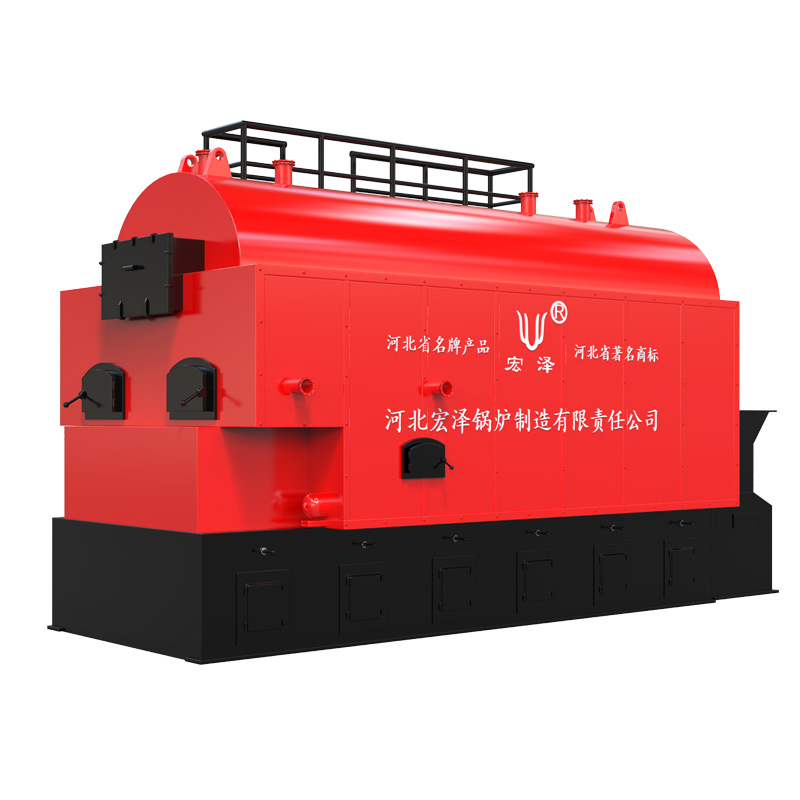
डिस . 11, 2024 09:58 Back to list
Optimizing Biomass Steam Boilers for Efficient Energy Production and Sustainability Solutions
The Role of Biomass Steam Boilers in Sustainable Energy Production
In recent years, the demand for sustainable energy solutions has surged, and among the promising technologies is the biomass steam boiler. This type of boiler stands out for its ability to convert organic materials into steam energy, providing a crucial tool in the transition toward renewable energy. As we delve into the mechanics, benefits, and potential of biomass steam boilers, it becomes evident that they play an essential role in a more sustainable future.
Understanding Biomass Steam Boilers
Biomass steam boilers are designed to burn organic materials—such as wood pellets, agricultural residues, and other plant-based sources—to generate steam. This process involves the combustion of biomass fuels in a furnace, where the heat produced is used to convert water in the boiler into steam. The steam can then be employed for a variety of applications, including electricity generation, heating industrial processes, or supplying hot water for residential use.
This technology distinguishes itself from conventional fossil fuel boilers by utilizing renewable resources. Biomass is considered carbon-neutral; when biomass is burned, it releases the carbon that the plants absorbed during their growth. As a result, the net carbon emissions from biomass energy production can be significantly lower, contributing to efforts in combatting climate change.
Benefits of Biomass Steam Boilers
1. Sustainability The primary advantage of biomass steam boilers lies in their sustainability. By utilizing waste materials and renewable resources, they help reduce dependence on fossil fuels and promote a circular economy. This not only conserves non-renewable resources but also minimizes waste, as agricultural and forestry residues can be effectively utilized.
2. Energy Security Biomass can be sourced locally, reducing reliance on imported fossil fuels. This enhances energy security for communities and countries, as they can produce their energy needs from readily available biomass sources. The decentralization of energy production through localized biomass facilities also aids in building resilience against global energy market fluctuations.
biomass steam boiler

3. Environmental Impact The environmental benefits of biomass steam boilers extend beyond lower carbon emissions. The utilization of biomass for energy can lead to improved land management by encouraging sustainable forestry and agriculture practices. Additionally, it reduces the amount of organic waste that would otherwise contribute to methane emissions in landfills.
4. Economic Opportunities The biomass industry fosters economic development, especially in rural areas. It creates jobs in biomass production, processing, and boiler operation. Investing in biomass infrastructure can stimulate local economies, align with agricultural practices, and provide additional income sources for farmers.
Challenges and Considerations
Despite their many advantages, biomass steam boilers face challenges. Efficient sourcing of biomass fuel is crucial; if not managed properly, large-scale biomass harvesting can lead to deforestation and biodiversity loss. Hence, sourcing practices must ensure sustainability and compliance with environmental regulations.
Furthermore, the technology required for biomass steam boilers should continue to advance. Innovations in boiler design and combustion technology can enhance efficiency and reduce emissions even further. Ongoing research and investment in biomass technologies are needed to optimize performance and drive down costs.
Future Outlook
As the global energy landscape shifts toward more sustainable solutions, biomass steam boilers are poised to play an increasingly vital role. Their versatility allows them to be integrated into various energy systems, whether as standalone units or in conjunction with other renewable technologies such as solar and wind. Additionally, as regulations around carbon emissions become stricter, the appeal of biomass energy sources is expected to grow.
In conclusion, biomass steam boilers present a transformative opportunity in the pursuit of renewable energy. With their sustainable nature and ability to reduce environmental impact, they contribute to a greener future. As the technology matures and industries adapt, biomass steam boilers could significantly influence the next phase of energy production, driving us toward a more sustainable and resilient global energy landscape.
-
Precision Steam Pressure Control Systems for Efficient Boiler Operations
NewsMay.22,2025
-
Optimize Steam Boiler Efficiency with Precision Control Systems Steam Boiler Control
NewsMay.22,2025
-
Professional Hot Water Boiler Schematic Diagrams & Steam System Layouts
NewsMay.22,2025
-
Steam Boiler Blowdown Guide Frequency, Safety & Efficiency Tips
NewsMay.21,2025
-
Steam Boiler Safety Devices & Valves Certified Overpressure Protection
NewsMay.21,2025
-
High-Temp Thermal Oil Boilers Optimal Boiling Point Efficiency
NewsMay.20,2025
Related PRODUCTS






















